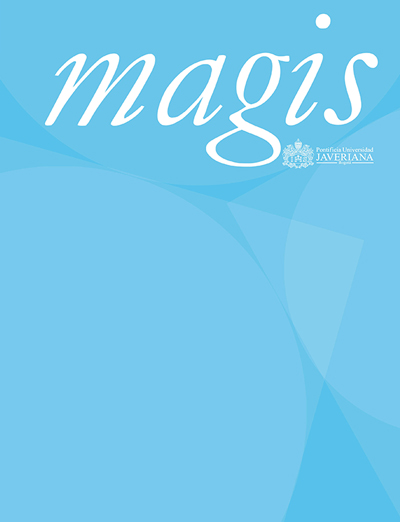Abstract
The aim of this paper is to present the repertory and gender distribution within a specific cycle of an Industrial Engineering degree in a university in Argentina. The analysis of frequency and distribution show a tendency towards a gradual incorporation of assignments in the industrial context. The analysis evidences a preponderance of practical knowledge and an interest in the early immersion of students in the technical and professional field. Also, aspects that deserve review are identified to help improve the teaching practices.
Magis, International Journal of Research in Education by Pontificia Universidad Javeriana is registered under a Creative Commons Attribution 4.0 International Public License. Thus, this work may be reproduced, distributed, and publicly shared in digital format, as long as the names of the authors and Pontificia Universidad Javeriana are acknowledged. Others are allowed to quote, adapt, transform, auto-archive, republish, and create based on this material, for any purpose (even commercial ones), provided the authorship is duly acknowledged, a link to the original work is provided, and it is specified if changes have behttps://creativecommons.org/licenses/by/4.0/en made. Pontificia Universidad Javeriana does not hold the rights of published works and the authors are solely responsible for the contents of their works; they keep the moral, intellectual, privacy, and publicity rights.
Approving the intervention of the work (review, copy-editing, translation, layout) and the following outreach, are granted through an use license and not through an assignment of rights. This means the journal and Pontificia Universidad Javeriana cannot be held responsible for any ethical malpractice by the authors. As a consequence of the protection granted by the use license, the journal is not required to publish recantations or modify information already published, unless the errata stems from the editorial management process. Publishing contents in this journal does not generate royalties for contributors.
Creative Commons Attribution 4.0 International Public License



